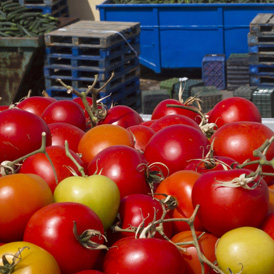E.coli outbreak is new ‘unique’ strain
The E.coli outbreak at the centre of the “killer salad” scare across Europe is a new mutant strain. The World Health Organisation says it is more virulent and toxin-producing.
Three British people in the UK have been infected with E.coli linked to the German outbreak, as early investigations show the strain is a new mutant form of the virus.
It brings the total number of cases in the UK to seven, of whom four are German nationals. It is believed all the patients caught the infection in Germany.
Food safety expert Hilde Kruse, from the World Health Organisation, said: “This is a unique strain that has never been isolated from patients before.”
She added that the new strain has “various characteristics that make it more virulent and toxin-producing”.
Three of the patients in the UK have developed the potentially deadly complication of haemolytic uraemic syndrome (HUS).
This is a unique strain that has never been isolated from patients before. Hilde Kruse, WHO
Cases of HUS and enterohaemorrhagic E.coli (EHEC) continue to rise in Germany, and more than 10 countries worldwide have now reported cases.

Nine people in Germany have died of HUS and another six of EHEC. One person has also died in Sweden, bringing the total number of deaths to 16, according to the latest figures from WHO. There are unconfirmed reports of at least one more death.
Many other patients are in hospital, with several needing intensive care, including dialysis.
Overall, more than 1,600 cases of complications linked to the E.coli outbreak have been reported worldwide.
All cases except two are among people who had recently visited northern Germany.
Your questions answered: What is E.coli?
In a worsening trade row prompted by the outbreak, Russia banned imports of all raw vegetables from the European Union, prompting an immediate protest by the European commission.
Moscow had already banned imports of vegetables from Germany and Spain over the outbreak, which German officials originally blamed on contaminated cucumbers imported from Spain before backtracking and apologising to Madrid.
Gennady Onishchenko, head of the Russian consumer protection agency Rospotrebnadzor, said the deaths caused by the outbreak “demonstrate that the much-praised European sanitary legislation, which Russia is being urged to adopt, does not work,” Interfax news agency reported.